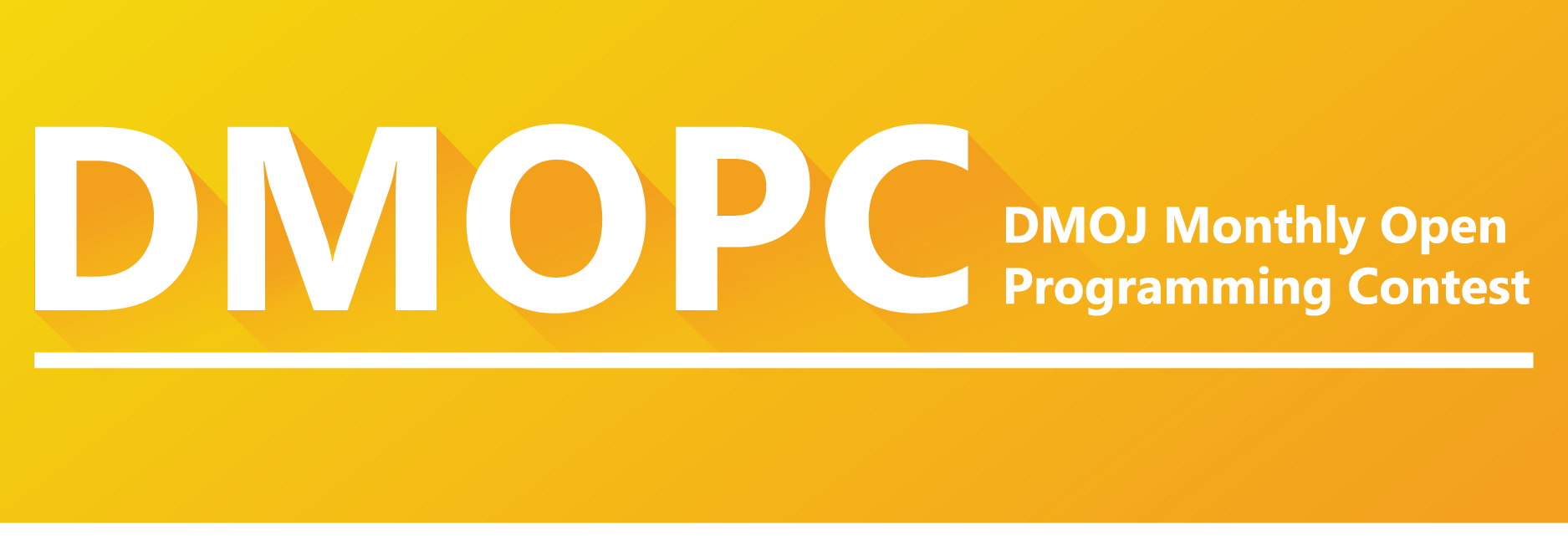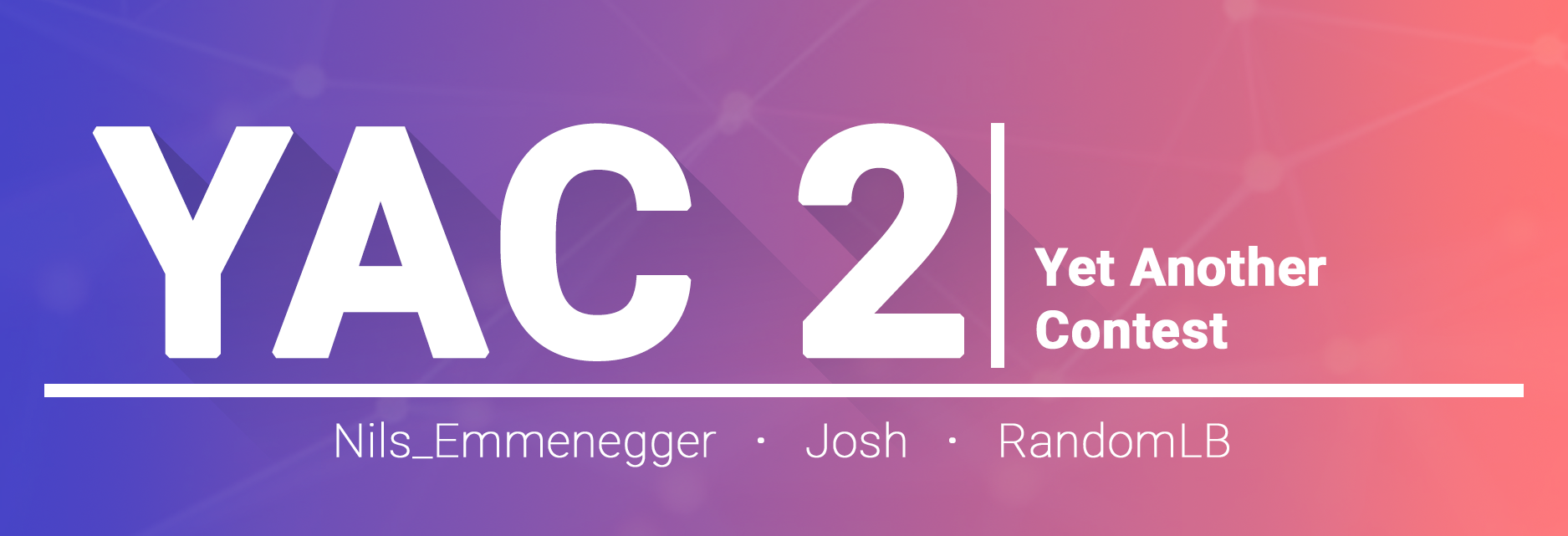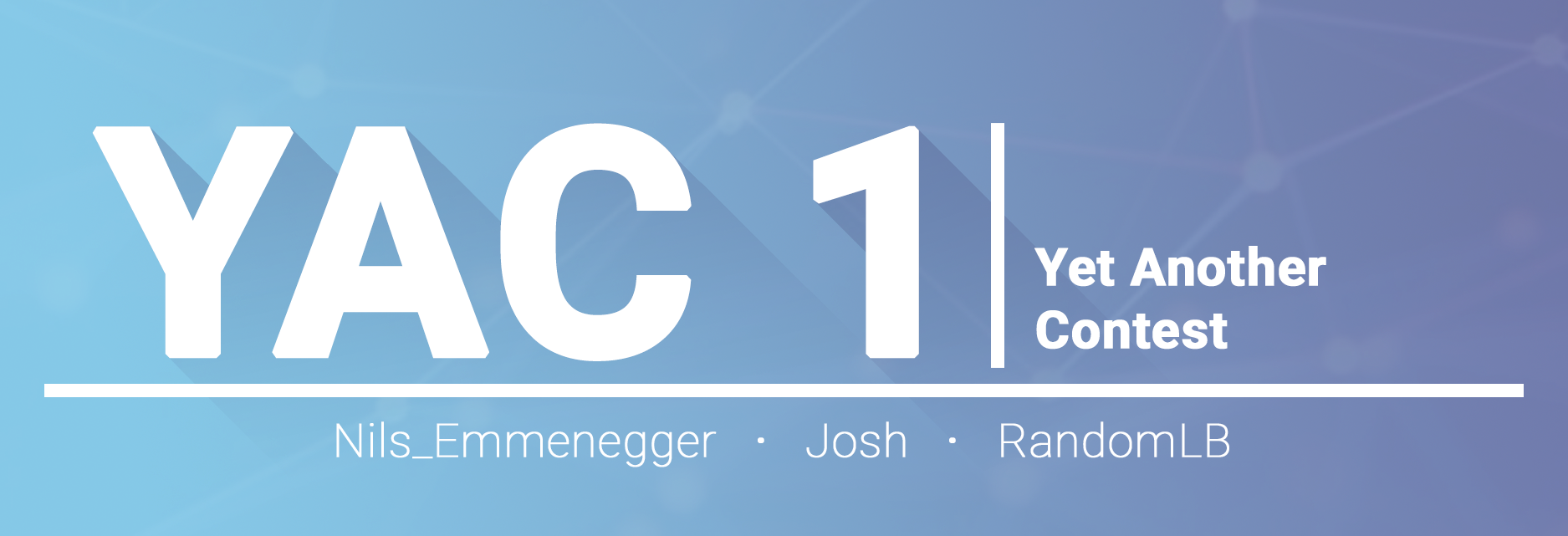SAC Code Challenge 5 2022
posted on May 18, 2022, 10:27 p.m. 0Thanks for participating in the final SAC Code Challenge!
The top 5 contestants from the main contest that win Discord Nitro are
- (the third time they have placed in the top 5 for this series!)
- (the second time they have placed in the top 5 for this series!)
- (the second time they placed in the top 5 for this series!)
The top 5 contestants from the junior contest are
- (the third time they have placed in the top 5 for this series!)
- (the second time they have placed in the top 5 for this series!)
Thank you for a great year! Be well.
Hi, everyone again (once more again for a second time for a final time)!
On Friday, May 20th, 2022, we'll be running the fifth and final SAC Code Challenge for this year!
The top 5 competitors in the main contest will receive 1 month of Discord Nitro or 2 months of Discord Nitro Classic.
To redeem your prize after the contest, please join the DMOJ Discord and verify your account belongs to you; then, direct message maxcruickshanks.
You can write both contests since there is no overlap in problems.
For both of these contests, you can write them in any two-hour window between May 20th, 00:00 EDT, and May 23rd, 00:00 EDT.
You can find more details about the junior contest on its contest page and the main contest on its contest page.
We hope to see you soon!
SAC Code Culture.




